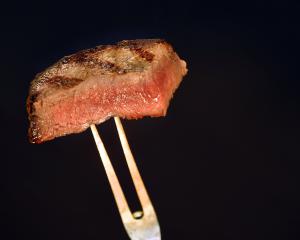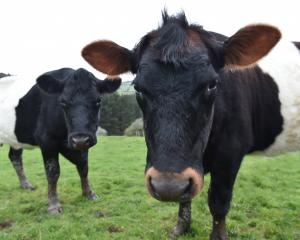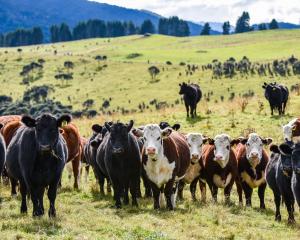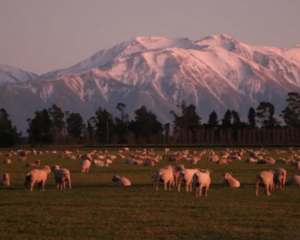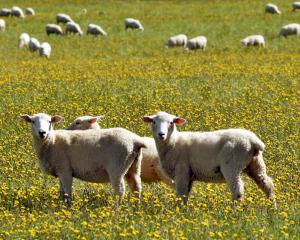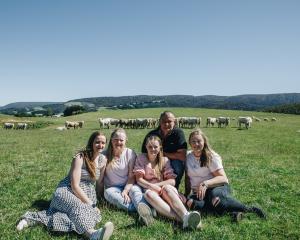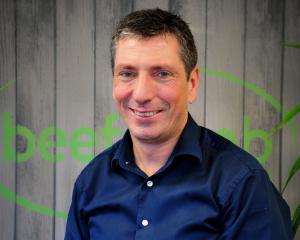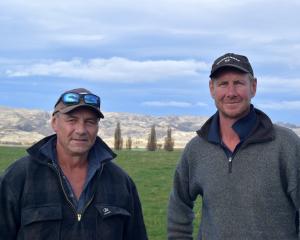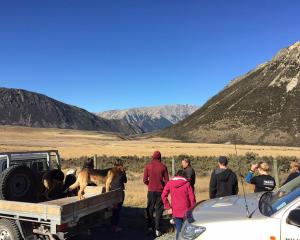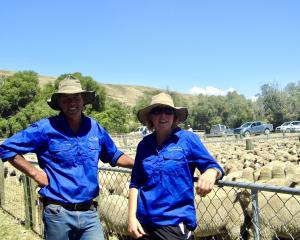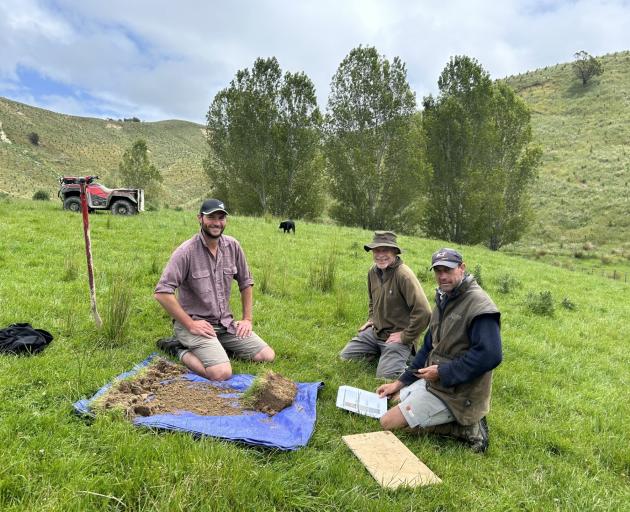
The 2.5-year project led by farmer-run group Quorum Sense (QS) and funded by Beef + Lamb New Zealand (BLNZ) will have more than 40 dryland farmers run farm trials nationwide.
They will be monitoring and comparing the results of managing ways to catch and retain more moisture in soils.
Farmers involved range from those on flat to high-country farms with light to heavy soils, and low to high rainfall running sheep breeding to dairy grazing operations.
The idea was sparked after farmers observed reduced runoff after rainfall as a result of putting in systems intended to help improve soil health.
Better summer and autumn pasture growth resulted, and they hope to reduce flood peaks.
With farmers increasingly feeling the effects of extreme weather events, there is a push to replicate the improvements.
Mid Canterbury farmer and project leader Sam Lang plans to start a trial next month at his lease block of about 450ha of foothills between Sheffield and Darfield, mostly dryland dairy grazing, cropping and some sheep and beef operation with 40ha in irrigation.
The trial is likely to be focused on changing a few grass paddocks from a ryegrass, cocksfoot, white clover and native grass mix to a different balance of possibly the same mix, but with more deeper rooted legumes and grasses.
‘‘[Ideally,] we want to have no runoff, particularly in summer, and we want that moisture to translate to pasture growth that we can keep our stock fed through summer, and hopefully that might mean we can cut down on cropping and supplements and any other costs that come with a long dry period and have the confidence we will have well fed stock.
‘‘That doesn’t guarantee it will rain, but at least if it does we can get the most out of it.’’
Mr Lang’s farm has returned to a drier summer after two previous La Nina years of consistent rain and some floods.
He would like rainwater evenly distributed over the paddocks rather than flowing into three main gullies.
He said the hill property would be considered more summer-safe than other farms, but they still relied on rain.
Even summer-safe farmers saw the value of catching more rain, he said.
The QS farmers had been working for a few years on the impact of long dry periods and droughts, he said.
‘‘The impact on farmers, their businesses and stock is pretty evident and some places of the country are supposed to get worse.
‘‘In addition to that, some farmers I work with were seeing some quite significant improvement in their infiltration rates and the resilience of their pasture through dry periods in response to changes they’ve made — so that got us curious as to what’s going on and why and how those practices are working and an opportunity for more farmers to catch more rain and be more resilient through summer.
‘‘There’s a productivity benefit too and hopefully an economic one.’’
It is early days still, but the most common trials are on grazing management approaches, particularly longer rest periods over summer.
Farmers are looking at different pasture species and mixes which are usually deeper rooted, with higher covers and longer lasting through summer.
They include lucerne and red clover and grasses such as cocksfoot, bromes and fescues.
They are also trialling farm nutrients, micro-feeds and fertilisers to improve the soil structure and water-holding capacity and help plants grow healthier and deeper roots.
Other farmers were doubling their recovery period on trial paddocks or part of them to gauge the results of re-growth, ground cover, soils and animal performance, Mr Lang said.
They knew there were opportunities to improve as some farms were getting runoff in the summer because of the intensity of rainfall or their soils could not get it into the ground fast enough, which was being lost to grass growth.
‘‘The value of even an extra 20mm of rain at the right time in summer that can be utilised and turned into grass growth [cannot be under-estimated].
‘‘Even if it is relatively small, the time of year we are targeting and what it can translate to for extra feed to get through that challenging period can really create value for you.’’
He said farmers were eager to see the trial results and valued the farmer involvement in the project.
‘‘The farmers decide what practices they want to trial and we support them with trial design, monitoring tools, etc.
‘‘Where trials show improvements, hopefully farmers will gain the confidence and experience to expand these practices across their farms.
‘‘If they don’t, farmers will have learnt a lot about their soils and pastures in the process and be well placed to try something different.’’
Wairarapa farmers Michael and Kate Tosswill, who run 130 cattle and more than 2000 ewes on their 586ha station, have set up two trials to test different grazing management and inputs designed to promote soil biology.
Mr Tosswill said they had witnessed more extreme weather patterns in recent years, ranging from ‘‘very wet to very dry’’.
‘‘For us, joining the project is about learning more about our soils and how to hold on to more moisture in the critical dry periods.
‘‘We spend a lot of time looking above the ground, but what we’re excited about ... is digging deeper into what’s going on underground.’’
BLNZ science strategy manager Suzi Keeling said the project would help provide farmers the tools, knowledge and data to be more resilient during drought and weather extremes.
The project is supported by scientists from Landcare Research, Plant & Food Research and Massey University and four farmer workshops were run last year.
Monitored data recorded by farmers during the trials is going on the Soilmentor app which links to a platform where the results are shared.
Quorum Sense was founded in 2018 as a charitable trust and farmer-led network providing support to farmers interested in biological and regenerative farming.


